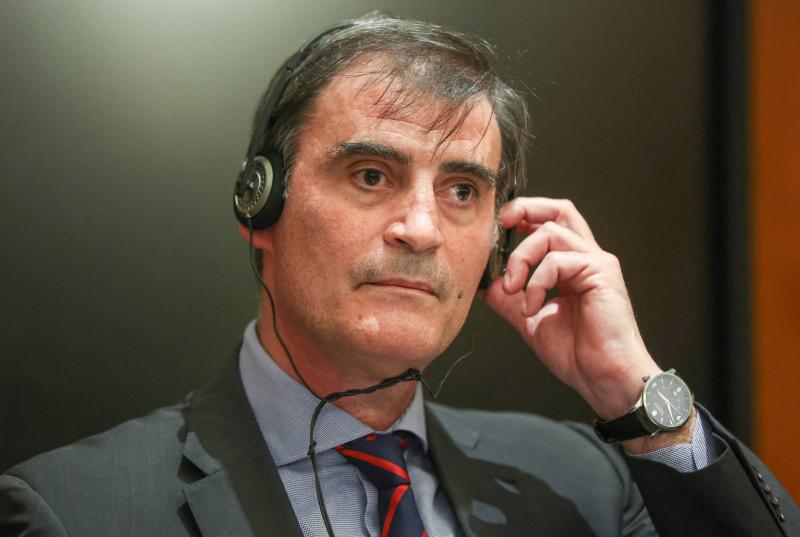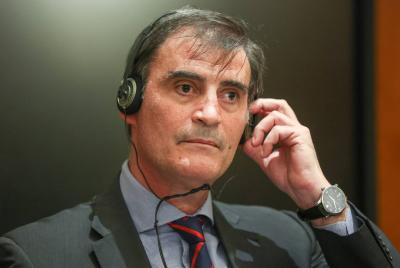The International Monetary Fund warned today, Thursday, that Lebanon is in an extremely dangerous situation a year after it pledged to implement reforms that it has failed to apply, urging the Lebanese government to stop borrowing from the Central Bank. In an unusually frank statement, IMF mission chief Ernesto Rigo said during a press conference held in Beirut after meetings with several officials, "Lebanon is in an extremely dangerous situation," stressing that "no more borrowing from the Central Bank... Over the years, the government has been borrowing from it, not only in the past but also in recent months, which we have recommended to stop." He added that authorities need to expedite the implementation of the IMF’s conditions to secure a $3 billion rescue package.
He noted, "We expected more in terms of applying and enacting the legislation related to the required reforms," pointing out that progress is "very slow" in this regard. The IMF called for the distribution of losses in the financial sector in a way that preserves the rights of small depositors and limits the recourse to state assets, amidst opposition from senior politicians and banks to this step, which has delayed recovery. He assured that the IMF "will never withdraw" from efforts to assist a member state and that there is no deadline for Lebanon to implement reforms. He concluded, "Lebanon must move towards an exchange rate determined by the market, rather than maintaining multiple exchange rates, including the rate on the Sayrafa platform of the Central Bank, which is not determined by market forces."
**Slow Reforms**
According to financial advisor and expert Mike Azar, the agreement with the IMF seems further away than ever. He explains that "for anyone watching Lebanon over the past four years, the likelihood of implementing the IMF program seems slim to none." He adds, "There is no urgency, no incentive, and no pressure on decision-makers to implement any of the essential reforms," explaining that Lebanon is heading toward disorganized dealings in dollars, a collapse of public services, and the elimination of remaining deposits.
The authorities have approved some reform measures, such as the 2022 budget, a review of the foreign assets of the Central Bank, and the amended banking secrecy law. However, the IMF's statement today pointed out that the amended banking secrecy law must be revised again "to address critical vulnerabilities." Lebanon still lacks a "capital control law" or a "law to regulate transfers and withdrawals" (capital control) and has failed to enact legislation to resolve its banking crisis, in addition to not consolidating the multiple exchange rates of the Lebanese pound, all measures that the IMF had requested to be implemented.
Lebanon had signed a staff-level agreement with the IMF about a year ago but has not met the necessary conditions to obtain the complete program that is essential for recovering its economy from one of the worst financial crises in the world. The government estimates total losses in the financial system at over $70 billion, most of which are owed to the Central Bank.




